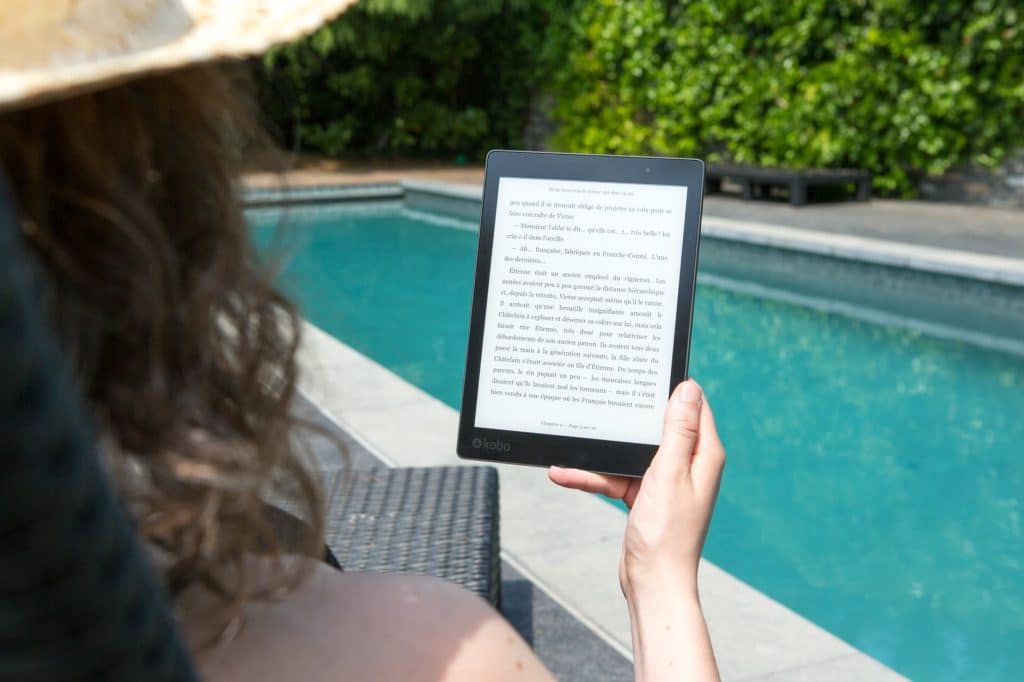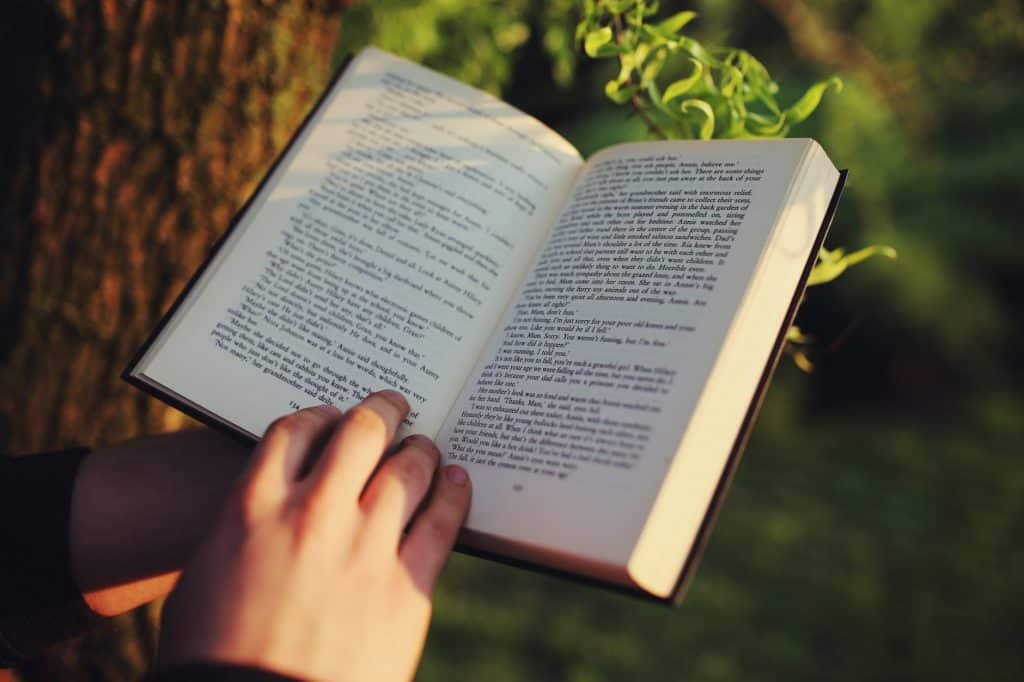The Great Reading Debate: E-Readers Vs. Paper Books
April 30, 2019
I love the smell of a new book. The sound the fresh, crisp paper makes when you turn the page. The feeling of the book’s weight in my hands. The knowledge that those 500 pages filled with raw emotions and heart-stopping suspense are all mine to unfold.
To me, there is nothing better than a full bookshelf (or, better yet, a library or book store full of books).
There are some people, though, who disagree. People who believe that books just take up too much space (gasp!), and that the better way to store and read your favorite books is on an e-reader.
So, which really is better? Are paper books becoming a thing of the past?
In an effort to solve this debate once and for all, I have compiled a list of the Pros and Cons of both e-readers and paper books.
E-readers
Pros:
- Size! They are small and easily portable (which is a plus if you travel a lot!). They also take up less space in your home
- They may appeal more to the younger crowd since they have more in common with other popular electronic devices
- E-readers such as Kindle frequently offer cheap or free book downloads
- You never have to wait to get the book you want. Just click “download” and within minutes you can start reading
- E-readers can be helpful for the visually impaired. You can easily adjust the font and print size to your liking
- E-readers with built-in dictionaries allow you to look up words on the spot
- You can easily keep all of your books in one place
Cons:
- Initial cost: A quality e-reader can be a bit pricey
- E-readers can be hard on your eyes
- Light-emitting e-readers can cause sleep problems when used at night
- You miss out on all of the great sensory experiences that a paper book provides
- They have to be charged
- If you drop your e-reader, your screen may crack
- E-readers can be hard to read in direct sunlight

Paper Books
Pros:
- You can enjoy a paper book with all of your senses
- Reading retention is better with paper books. When you read text on a screen, your mind tends to scan the information. When reading text in print, your mind is forced to slow down and focus more on what you are reading
- Paper books are easier on your eyes
- You can read paper books anytime and anywhere—no charging or batteries necessary
- You won’t crack your book if you drop it
- A paper book is easier to share. While some e-readers will allow you to send a book to a friend, it is usually for only a couple of weeks at a time (and some e-readers do not offer this feature at all)
Cons:
- Paper books take up more space on your shelves
- They can be harder to travel with since they are bigger and heavier than e-readers
- No instant gratification—You must either go to a store (or library) to get your book, or order your book online and wait for it to arrive
- Paper books tend to be more expensive than e-books (someone has to pay for publishing and printing!)
- Paper books are easier to misplace (or be borrowed, and never returned)

And the verdict is…
Really, there is no verdict.
The question of which is better, e-readers or paper books, really comes down to personal preference. And even though I will probably never fully convert to using an e-reader, I must admit that I do own one and use it when I travel. After all, with the excess baggage fees now charged by airlines, who can afford to tote a suitcase full of books on vacation?































I’ll always prefer a paper or hardback over an e-reader any day. I like to be able to look at my bookshelf to browse what I want to read next or read again over flicking through a virtual library. If something goes wrong with your e-reader, there’s a chance that you’ll lose your favourite saved books.